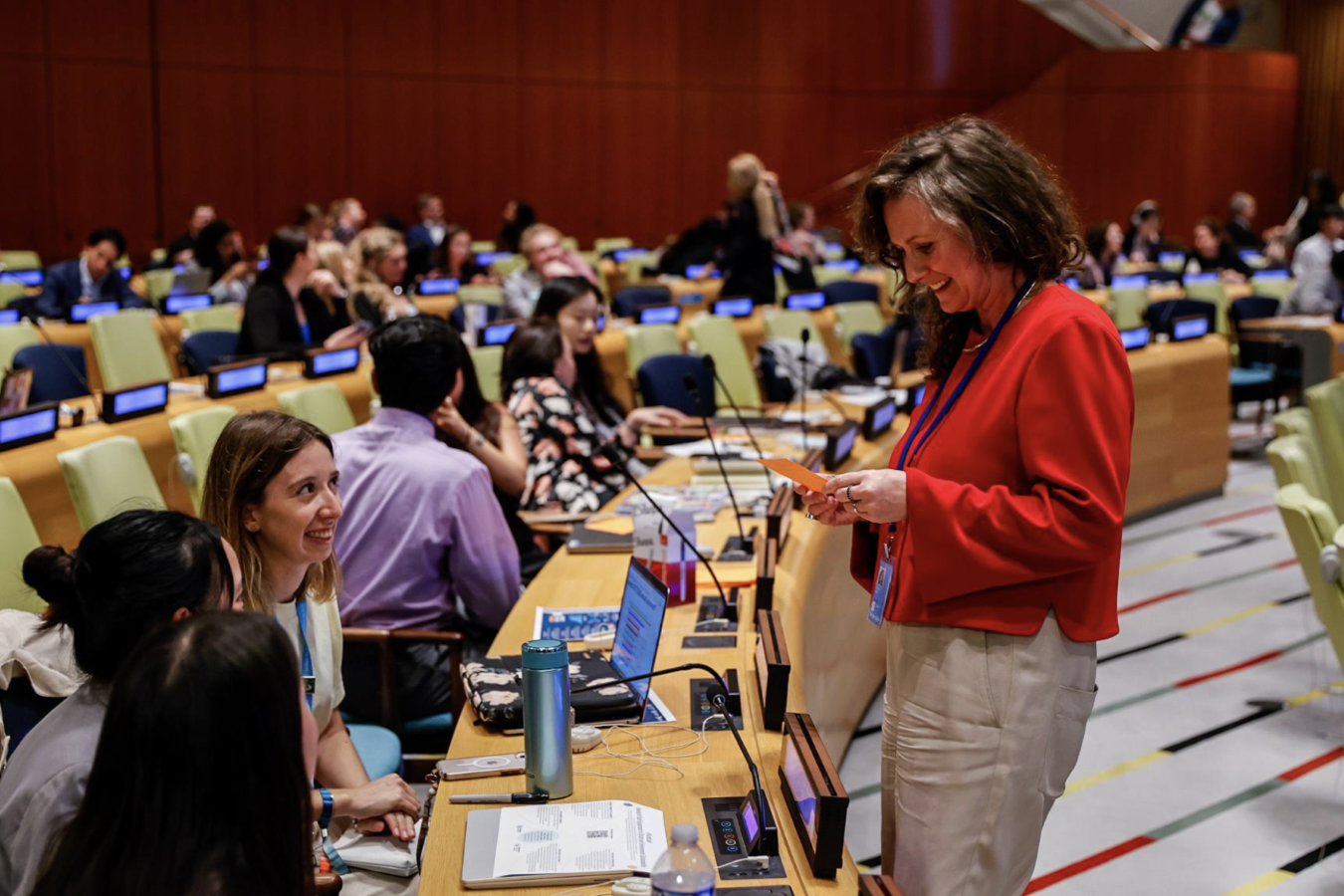During September’s high-level week, world leaders gathered in New York for the 80th session of the United Nations General Assembly (UNGA) under the theme, “Better together: 80 years and more for peace, development, and human rights.” The week reflected on eight decades of UN work while spotlighting some of today’s most pressing global challenges. Delegations also marked three major anniversaries: the 30th anniversary of The Beijing Declaration and Platform for Action, the 30th anniversary of the World Programme of Action for Youth, and the 10th anniversary of the Paris Agreement on Climate Change.
Why does marking the anniversaries of these agreements matter? The high-level discussions of these milestones offered opportunities not only to take stock of progress but also to confront the gaps that remain since the agreements were created. The gathering on women reaffirmed the urgency of addressing gender-based violence, closing political and economic gender gaps, and ensuring women’s full participation in climate and peace processes. At the youth-focused discussions, speakers emphasized that today’s generation—one of the largest in history—remains excluded from decision-making despite leading on climate action, technology, and local solutions. The climate sessions carried an unmistakable tone of urgency, with calls for stronger targets, faster timelines, and deeper commitments from countries most responsible for global emissions.
While some member states brought diverse perspectives, many maintained similar positions. The President of the Republic of the Marshall Islands underscored the role of young people worldwide, noting that “accelerating global progress is only possible through intergenerational collaboration.” The President of Montenegro echoed this view, stressing that “peace and climate change cannot be addressed by one generation alone.” Secretary-General António Guterres emphasized that “equal rights for women are not only a global imperative but also a foundation for peace, prosperity, and progress.”
For Quaker partners, these themes resonate deeply with ongoing work at the UN. The Quaker United Nations Office (QUNO) prioritizes women, youth, and climate resilience as essential to building sustainable peace, and this year’s UNGA underscored those connections. Across side events and civil society gatherings, participants highlighted the need for inclusive dialogue and meaningful roles for those directly affected by global crises. QUNO’s peacebuilding approach seeks to create space for such voices, encouraging collaboration between diplomats, civil society, and communities worldwide.
As UNGA 80 reflected on what has been achieved and looked ahead to what remains unfinished, the message was clear: progress depends on commitment, action, and living up to responsibility. Calls for greater financing, stronger representation in decision-making spaces, protection of civic space, and intersectional approaches rang throughout the week. These anniversaries served not only as milestones but as reminders of the urgent commitments still unmet.
Photo Credit: UN Youth Office/Joel Sheakoski







